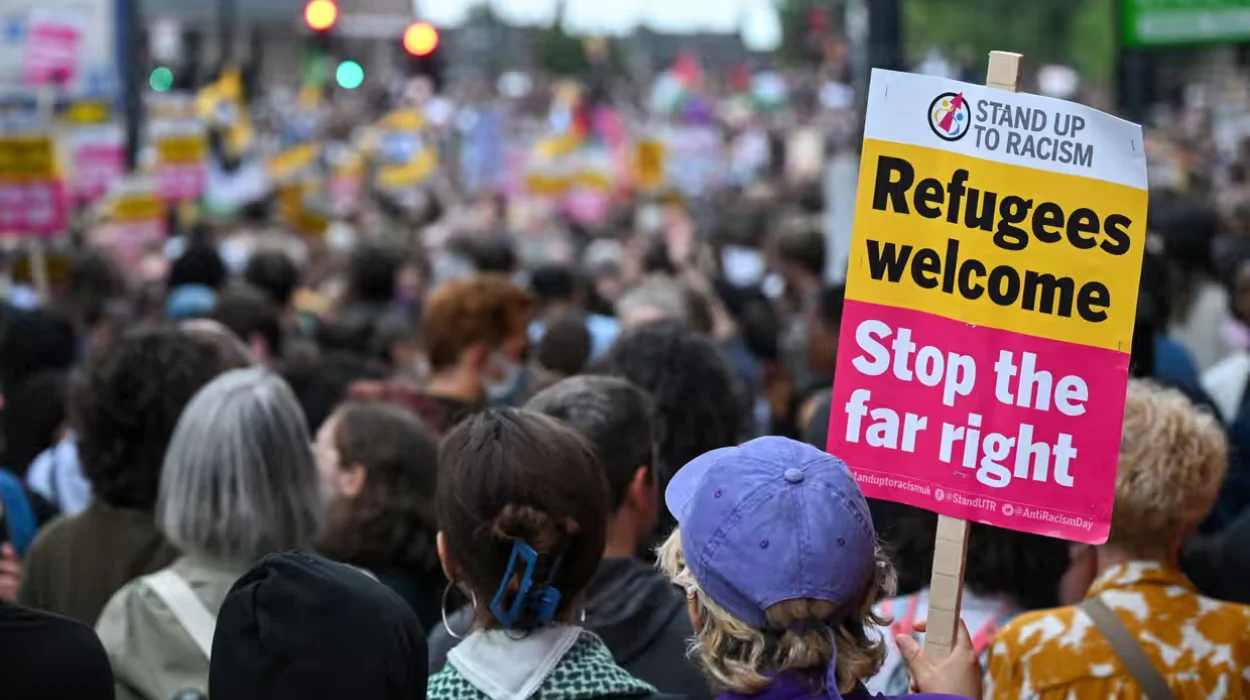UK (Parliament Politics Magazine) – A More in Common study finds leftwing activists less likely to work with political opponent groups, potentially fueling divisions in British politics.
Research reveals that left-wing activists in Britain are less inclined to collaborate with political rivals and are more likely to believe those with different views have been misled.
What did the study reveal about progressive activists?
Research by More in Common finds that 8-10% of Britain, identified as “progressive activists,” hold significantly distinct opinions on various political and social issues.
The findings highlight that this group tends to be more critical of opposing views, a trend experts argue has weakened left-wing campaigns and contributed to the global rise of the far right.
More in Common conducted surveys, focus groups, group discussions, and one-on-one interviews with more than 1,000 participants to analyse progressive activists, the most left-wing segment among the seven political “tribes” it has identified in the UK.
Pollsters define the group as young, well-educated, and socially progressive, accounting for about 8% of the population but having a significant presence in public sector bodies and charities.
What did Luke Tryl say about progressive activists?
Luke Tryl, an executive director at More in Common and co-author of the study, stated,
“Progressive activists are the backbone of many of the UK’s campaigning organisations and have often been the drivers of social change in the UK. However, their political outlook and approach to bringing about change make them outliers from much of the wider public and those they are trying to win over.”
He added,
“In particular this report finds that a tendency to impose purity tests on those they will campaign with, overestimating how many people share their views, and using language that is inaccessible to the wider public is potentially driving a backlash against progressive causes rather than helping them to win people over.”
Mr Tryl highlighted that the liberal left must shift towards a more intentional approach of direct engagement and persuasion rather than expecting widespread acceptance of social change from the public.
How do progressive activists differ from the rest of the UK electorate?
Researchers Tryl and Hodgson found that the progressive group holds distinctly different political and cultural views compared to the wider UK electorate.
The study revealed that this group is the only segment where the progressive bloc advocates for stable or higher immigration and supports the positive influence of “woke culture” on British society.
According to the study, the gap between progressive activists and the rest of the public is challenging, as they are more inclined to misjudge, criticise, and avoid working with those who do not share their political views.
How do progressive activists misjudge public opinion and political opponents?
The survey indicates that progressive activists significantly misjudge public sentiment, thinking 35% support abolishing the monarchy, while the real figure stands at 18%. They also believe that 25% favour admitting more refugees, though the actual number is just 8%.
The poll data highlights that two-thirds of participants refused to campaign with Reform voters, while 46% felt the same about Conservative supporters.
Findings from focus groups suggest that progressive activists are more likely than other supporters to believe their political opponents have been influenced by misinformation, often leading to negative perceptions.
The survey data shows that 72% of progressive activists perceive leave voters unfavourably, whereas only 24% of “backbone conservatives” – the most right-wing segment – feel the same about remaining voters.
Left and right-wing politics
Left and right wings represent opposite ends of the ideological spectrum, with the far left and far right at either extreme and centrism occupying the middle ground.
The Labour Party in the UK is classified as centre-left, and the Conservatives as centre-right.

